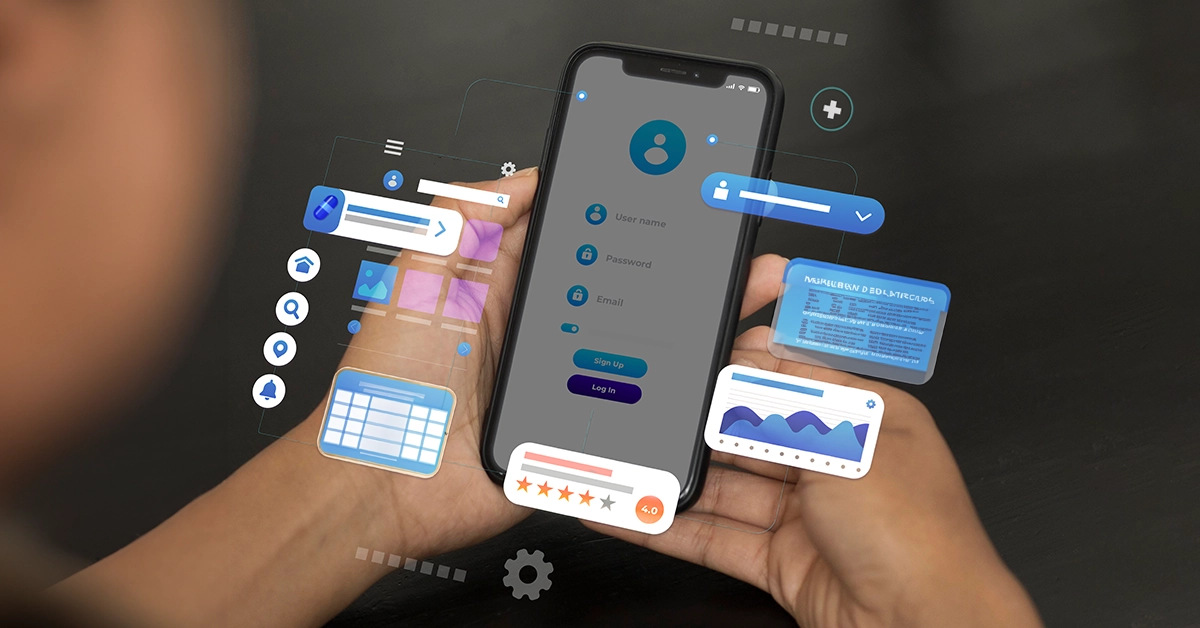Exploring Impact of Patient-Centric Apps from Physician’s Perspective

Abstract
Patient-centric approaches in diabetes management leverage digital technologies to facilitate personalised and collaborative experiences between patients and clinicians. The diabetes-care landscape has evolved tremendously by integrating mobile health, including smartphone apps in disease management.
It enhanced patients’ self-management skills and offered a consistent and personalised experience in diabetes care. This blog delves into the benefits of patient-centric approaches in diabetes management from a physician’s perspective.
Understanding the Need for Patient-centric Approaches in Diabetes Management
A study by Sharon W. Lahiri et al pointed out that patient-centric approaches in diabetes management evaluate individual patients’ unique characteristics, preferences, and abilities to provide a personalised treatment plan and therapeutic goals.
According to his review, patient-centred care revolves around 5 core concepts:
- Biopsychosocial perspective (social and psychological influences on diseases and behaviour)
- Prioritising patients’ personal experience of health issues
- Shared power and responsibility in the therapeutic journey between doctors and patients, whereby patients execute greater autonomy and participation in decision-making.
- Mutual trust and understanding between doctors and patients for treatment needs and goals
- Influence of personal qualities of the doctor
Another study by Dr Sanjay Kalra on person-centred care in diabetes pointed out that this modern medico-academic culture aims to bridge the gap between patients’ expectations and physicians’ services thus enhancing patients’ engagement and involvement in their therapeutic journey.
You can also check out Fitterfly’s earlier blog on Personalised Care in Metabolic Health: Insights from Fitterfly’s Expert Discussion for a detailed understanding of this topic.
Role of Patient-Centric Apps in Diabetes Management
Patient-centric smartphone apps serve as indispensable tools for a seamless and personalized approach to diabetes management. Detailed below are some of the crucial roles of these apps in diabetes care.
1. Reminder for Medication
Smartphone apps empower people living with diabetes to maintain the correct medication regime. Patients either manually input medicine names and doses or upload their latest prescription to set an alarm for pills.
In many cases, members also receive a push notification if they miss any dosage. Some apps can also be synced to a pill dispenser to take the correct dosage of medicine timely. This feature is especially beneficial for aged diabetes patients and those suffering from memory-related issues.
2. Hypo and Hyperglycaemia Warning
Most continuous glucose monitoring (CGM) devices are synced to a health app which helps in tracking the blood sugar level 24×7. It warns patients by sending out an alarm in hypo and hyperglycaemic events.
The Food and Drug Administration approved Abbott FreeStyle Libre 2 gadget has compatible smartphone apps for both iPhone and Android users.
A seamless scanning of the device demonstrates an 8-hour historical glycaemic graph and the body’s reactions to various foods and exercises.
3. Maintaining Food Diary
Food Diary is another striking feature of patient-centric apps. Users can input their food intake under breakfast, lunch, snacks and dinner along with the portion sizes.
The app provides a detailed analysis of the calorie intake, the nature of the food, recipes for diabetes-friendly delicacies, and the personalised glycemic response (PGR) score.
The app can determine the PGR for foods by correlating the CGM values and food diary. A good understanding of PGR can effectively manage blood glucose levels and prevent long-term diabetes complications.
Chatbots as Personalised Diabetes Coaches
Artificial intelligence (AI), natural language processing (NLP), and machine learning (ML)-driven healthcare chatbots are functioning as personalised diabetes coaches to analyse patients’ queries and provide logical answers.
They adhere to their treatment plans and generate higher levels of engagement with chatbots. Artificial Intelligence Diabetes Assistant (AIDA), Chatgpt, Emile, X2AI, and JEDi are some popular diabetes care chatbots.
Benefits of Doctors in Recommending Patient-Centric Apps
Physicians are increasingly recommending patient-centric apps to attain the following outcomes:
1. Mobile Monitoring of Patients
Patients can seamlessly sync their Electronic Health Records (EHRs) with the latest patient-centric apps and thus facilitate remote healthcare access. Upon timely scanning, the CGM devices also upload glycemic graphs on the app.
In this way, doctors can guide patients accurately whenever they show hypo or hyperglycaemic symptoms. The apps are also economically viable as they reduce frequent clinic visits.

Fig 1: Patient-centric apps are also beneficial for doctors in remote monitoring, achieving better medical adherence and reducing diagnostic errors.
2. Better Medical Adherence
The new-age patient-centric apps have in-built AI-driven chatbots, thus fostering top-notch user experience. They lead to customer delight, customer engagement and better customer retention by delivering only relevant patient-specific information by leveraging data and insights.
3. Reduced Diagnostic Errors
Many mobile apps for doctors come with built-in intelligent diagnostic abilities, reducing the risk of diagnostic errors. They assist physicians in making informed decisions by providing timely and accurate data analysis. Some apps also forecast drug interactions and outcomes to promote a safer diagnostic procedure.
Future Outlook of Patient-Centric Apps
The future outlook of patient-centric apps holds great promise as they will transform healthcare into a more personalised and accessible experience.
AI-ML-driven apps will provide customised health insights, predictive analytics, and tailored treatment recommendations. In the future, diabetes management will become more patient-driven, where technology acts as an enabler for improved health outcomes.
Key Insights
- Patient-centric apps in diabetes management offer personalised health insights, foster medication adherence, and promote satisfying therapeutic experiences.
- They help patients through medication reminders, hypo and hyperglycaemia warnings, meal analysis, and resolving queries via healthcare chatbots.
- These apps also benefit physicians by enabling remote monitoring, reducing diagnostic errors and promoting medication adherence.
This blog provides general information for educational and informational purposes only and shouldn't be seen as professional advice.
Want to know how can Fitterfly enhance your practice and improve patient outcomes?














